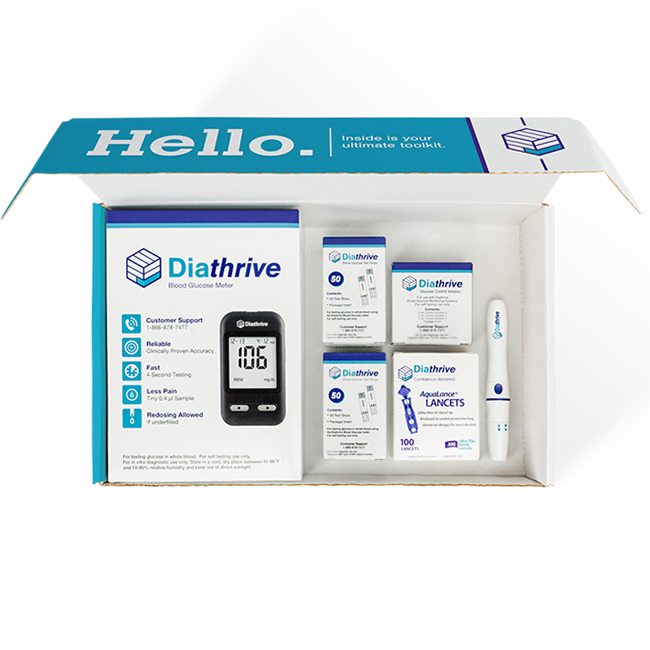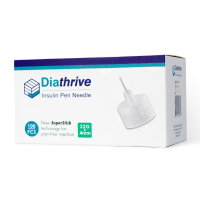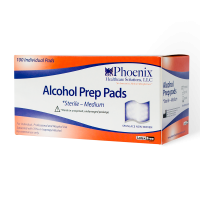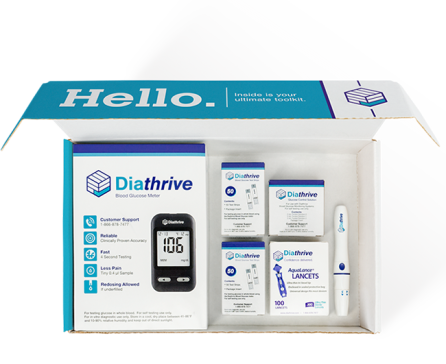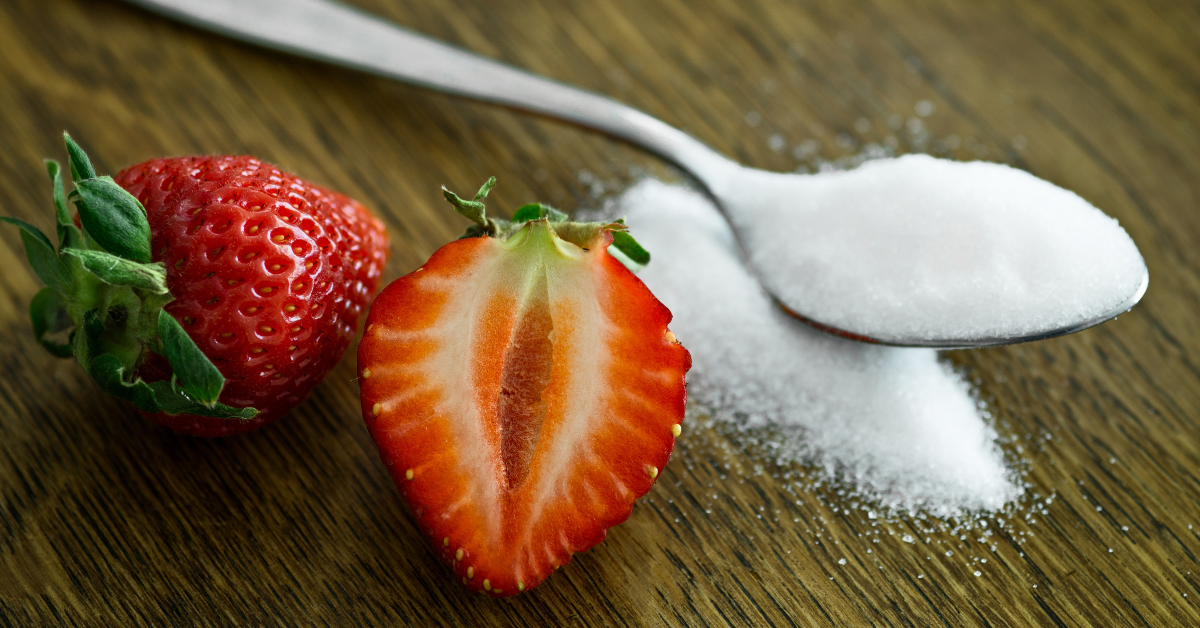
Have you heard that artificial sweeteners are worse for you than sugar? Here are my review and thoughts on artificial and alternative sweeteners.
I grew up on sugar. Sugar was added to many foods. For example, my mother would buy plain cereal for my siblings and me. We ate Cheerios, Corn Flakes, Rice Krispies, Shredded Wheat and others. Any kid knows that these cereals do not taste amazing. In order to make them palatable, we would sprinkle sugar across the top. Before diabetes was part of our household we didn’t have to think about carbohydrates and blood sugar. We were eating a decent amount of whole grains, but with a dash of sweetness. But after my diagnosis in 1997 we made some changes. We stocked a big container of Equal (aspartame) in the pantry. Although the adjustment tasted strange, it did decrease the blood sugar impact of my carb-heavy breakfast. Eventually, I stopped eating cereal for breakfast entirely. But, I did continue using artificial sweeteners in other areas of my diet.
Are artificial sweeteners safe to use?
Fast forward to more recent years. The first time I heard that “artificial sweeteners are worse for you than sugar!” I had my doubts. But, I also took pause. I remembered in my early days with diabetes that the pink packet at the diner was saccharin, and was labeled with a warning: USE OF THIS PRODUCT MAY BE HAZARDOUS TO YOUR HEALTH. THIS PRODUCT CONTAINS SACCHARIN WHICH HAS BEEN DETERMINED TO CAUSE CANCER IN LABORATORY ANIMALS.
As time went on I heard more and more about the dangers of artificial sweeteners. They are commonly stated, though seldom with sufficient evidence other than the assumption that we should not be putting unnatural chemicals in our bodies. After doing some studying myself I found many of the anti-artificial sweetener claims lacked sufficient evidence, including the one that forced saccharine products to include the since-removed warning label.
Artificial sweeteners
The real benefit of artificial sweeteners is that most do not impact blood sugar significantly, helping me reduce the sugar in my diet in a practical and sustainable way. This is very useful for people who are trying to manage blood sugar or lose weight since sugar is a major culprit in increasing both. Additionally, these sweeteners don’t contribute to tooth decay and cavities, according to Mayo Clinic [1].
Some of the most popular examples of artificial sweeteners are:
-
Aspartame - The best-known brand of this sweetener is Equal. Aspartame is about 200x sweeter than sugar. Foods containing aspartame carry a warning label: PHENYLKETONURICS: CONTAINS PHENYLALANINE. This warning applies to people with PKU, a very rare birth defect were natural phenylalanine build up in the body. In very high quantities, it becomes a neurotoxin [2]. For those who do not have PKU, when consumed in rational, moderate quantities, aspartame is generally considered safe.
-
Acesulfame Potassium - This one is found in beverages, gelatins and gum. It is about 200x sweeter than sugar and has a history of 30 years with no reported side effects. It is not stored in your body but passes right through [3].
-
Saccharine - The best-known brand of this sweetener is Sweet’n Low. Saccharine is about 300-400 times sweeter than sugar. While earlier studies claimed that this sweetener comes with a cancer risk, newer studies found factors in laboratory animals that do not apply to humans. We are not at risk of developing cancer from this sweetener as previously thought [4].
-
Stevia - While this one is commonly grouped with “artificial sweeteners,” it is more of an “alternative” sweetener. Stevia is made from the leaves of the stevia rebaudiana plant. The kind you can buy in a store isn’t pure stevia, but a mix of stevia extract and other sweeteners. Stevia products are about 200x sweeter than sugar, and only mild side effects have been suggested [5]. But as long as it is consumed in moderation, like with most foods, it is generally considered safe.
-
Sucralose - The best-known brand of this sweetener is Splenda. Sucralose is about 600x sweeter than sugar. Because of this level of intense sweetness, very little needs to be used when replacing sugar. This one has become the new saccharine, in that recent controversy over its safety and health risks has been widely discussed. You can read more about the “maybes” of sucralose safety at NCBI [6]. While there is quite a buzz over this, nothing scientifically concrete has proven it dangerous, at least not enough to change its FDA approval. More studies are needed before this sweetener can be deemed unsafe. In the meantime, if you choose to consume this very useful sweetener, just remember that overconsumption of just about anything can be considered bad for your health.
-
Sugar Alcohols - I know what it sounds like, but this isn’t the same as the alcohol found in distilled spirits. Sugar alcohols occur naturally but can also be manufactured. They include sorbitol, mannitol, xylitol, glycerin, sorbitol and many others [7]. The big difference between most artificial sweeteners and sugar alcohols is that these can actually impact blood sugar, though not as much as sugar does. Sugar alcohols are often found in “sugar-free” foods you might find in the “diabetic foods” section at the grocery store. But they are also found in low-calorie gum and similar products. Be sure to check nutritional facts on packages labeled as sugar-free if you count carbohydrates.
Alternative sweeteners
Most of your standard alternative sweeteners are simply other forms of sugars. Some of them are sweeter so less can be used to replace cane sugar and high fructose corn syrup (HFCS), others have a lower glycemic index, and many even have nutritional benefits that are not found in a teaspoon of sugar. Americans eat an average of 20 teaspoons of sugar per day. Unlike artificial sweeteners, sugar is actually linked to increased risk of several chronic illnesses. There is wisdom in reducing our sugar intake.
While the blood sugar impact may be similar, if you are looking for ways to reduce the empty calories in table sugar and HFCS, consider looking at some of these popular alternative sweeteners:
-
Agave nectar has a lower glycemic index and is 1.5x sweeter than table sugar so less can be used) [8].
-
Banana puree has more nutritional value than table sugar.
-
Coconut sugar has a lower glycemic index than table sugar.
-
Maple syrup is sweeter than table sugar so less can be used.
-
Molasses contains important vitamins and minerals not found is table sugar.
-
Monk fruit extract is 150-300x sweeter than table sugar so less can be used, but is also much lower in carbohydrates and calories.
-
Raw honey contains antioxidants, some vitamins and minerals, has a lower glycemic index, is sweeter than table sugar so less can be used and has other health benefits [9].
I am not a dietitian. Diathrive is not here to tell you what you should or should not eat. But, we do promote mindfulness and moderation in eating strategies for diabetes management. If you still choose not to use artificial sweeteners, that is just fine. Just take a look beyond the controversy and buzz to look at the facts behind sweeteners as you make dietary decisions. They can be very useful in managing weight and blood sugar.
References:
[1] Mayo Clinic: Artificial sweeteners and other sugar substitutes. https://www.mayoclinic.org/healthy-lifestyle/nutrition-and-healthy-eating/in-depth/artificial-sweeteners/art-20046936
[2] PubChem: Phenylalanine.
https://pubchem.ncbi.nlm.nih.gov/compound/L-phenylalanine#section=Top
[3] Food and Wine: A Complete Guide to the Most Popular Artificial Sweeteners. https://www.foodandwine.com/desserts/your-guide-to-the-most-popular-artificial-sweeteners
[4] Cancer.gov: Artificial Sweeteners and Cancer. Paragraph 4. https://www.cancer.gov/about-cancer/causes-prevention/risk/diet/artificial-sweeteners-fact-sheet
[5] WebMD: Stevia. https://www.webmd.com/vitamins/ai/ingredientmono-682/stevia
[6] NCBI: Sucralose, A Synthetic Organochlorine Sweetener: Overview of Biological Issues. https://www.ncbi.nlm.nih.gov/pmc/articles/PMC3856475/
[7] American Diabetes Association: Sugar Alcohols. http://www.diabetes.org/food-and-fitness/food/what-can-i-eat/understanding-carbohydrates/sugar-alcohols.html
[8] Verywell Health: Alternative Natural Sweeteners for Diabetes. https://www.verywellhealth.com/alternative-natural-sweeteners-for-diabetes-1087573
[9] Healthline: The Top 6 Raw Honey Benefits. https://www.healthline.com/health/food-nutrition/top-raw-honey-benefits


